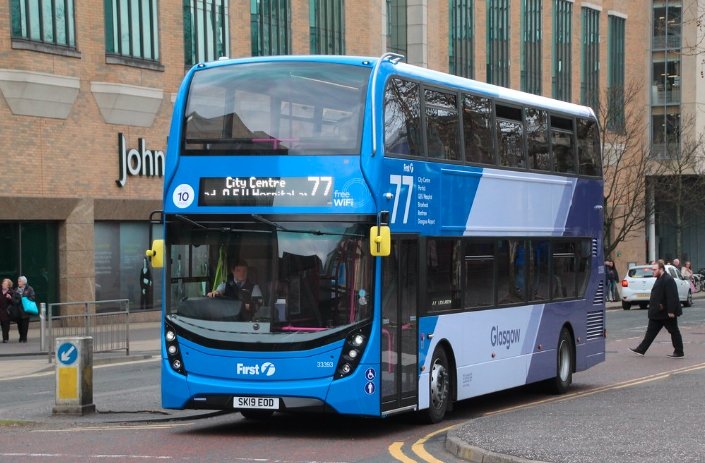In a recent announcement, First Bus has revealed that selected ticket prices will increase starting next month. This decision comes after a 16-month freeze on fares, driven by rising operational costs including fuel, energy, and labor. The fare adjustments will affect various ticket types, including the Adult Two-Trip, FirstWeek, and First4Week tickets. Despite these changes, First Bus emphasizes its commitment to providing affordable and sustainable transportation options for Glasgow residents.
Reasons Behind the Fare Increase
First Bus has cited several reasons for the upcoming fare increases. The primary factor is the significant rise in operational costs over the past year. Fuel prices have surged, and energy costs have also seen a substantial increase. Additionally, the cost of parts and labor has risen, making it challenging for the company to maintain its previous fare structure.
The company had managed to keep fares stable for 16 months, absorbing these increased costs to benefit its customers. However, the financial strain has reached a point where it is no longer feasible to continue without adjusting ticket prices. This decision was not made lightly, and First Bus has worked to ensure that the increases remain as minimal as possible.

Despite the fare hikes, First Bus continues to invest in its services. The company has introduced more buses to meet growing demand, improved punctuality, and increased the number of zero-emission electric buses in its fleet. These investments are part of First Bus’s ongoing commitment to enhancing the quality and sustainability of its services.
Impact on Passengers
The fare increases will affect several ticket types, with changes set to take effect from August 4th. The Adult Two-Trip City/Local tickets will rise from £5 to £5.20, while the Adult FirstWeek City/Local tickets will increase from £20.40 to £22.50. The Adult First4Week City/Local tickets will see a more significant rise, going from £61.80 to £70.
For passengers who rely on these tickets for their daily commute, the increases may pose a financial challenge. However, First Bus has emphasized that it offers a diverse range of ticket options to suit different travel needs. The company encourages passengers to explore these options to find the most cost-effective solution for their journeys.
First Bus also highlights the benefits of using the Tap On, Tap Off payment method, which allows passengers to pay for their specific journey and ensures they are charged the lowest fare for their route. This system remains unaffected by the fare increases and offers a convenient and economical way to travel.
Future Plans and Commitments
Looking ahead, First Bus remains committed to providing reliable and sustainable transportation for Glasgow residents. The company is focused on continuing its investments in new technologies and environmentally friendly buses. These efforts are aimed at reducing the environmental impact of public transportation and improving the overall passenger experience.
First Bus is also working on enhancing its service reliability and punctuality. The introduction of an AI-driven timetable scheduling platform has already shown positive results, and further improvements are planned. These initiatives are part of First Bus’s broader strategy to make public transportation a more attractive and viable option for commuters.
The fare increases, while necessary, are part of a larger effort to ensure the long-term sustainability of First Bus’s services. By balancing operational costs with investments in service quality and sustainability, the company aims to continue serving the needs of Glasgow’s residents effectively.


















